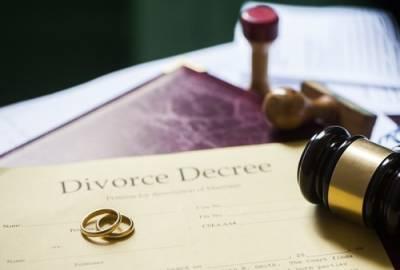Proving that Your Spouse Lied When Disclosing Debts and Assets
 During a divorce, spouses are required to disclose detailed information about their income, assets, and debts. This ensures that both parties are able to make informed decisions during the property division process and that any settlement or court order incorporates accurate information about all known financial factors. While many divorcing spouses are careful to provide accurate and detailed financial records to each other, it is also not uncommon for one spouse to attempt to lie about assets or debts in an effort to retain the entire interest in an asset or to force a spouse to pay more than his or her fair share of a debt. This type of conduct is strictly prohibited under state law, so if you believe that your spouse is attempting to hide assets or liabilities, it is important to contact an experienced high asset divorce attorney who can ensure that your interests are protected.
During a divorce, spouses are required to disclose detailed information about their income, assets, and debts. This ensures that both parties are able to make informed decisions during the property division process and that any settlement or court order incorporates accurate information about all known financial factors. While many divorcing spouses are careful to provide accurate and detailed financial records to each other, it is also not uncommon for one spouse to attempt to lie about assets or debts in an effort to retain the entire interest in an asset or to force a spouse to pay more than his or her fair share of a debt. This type of conduct is strictly prohibited under state law, so if you believe that your spouse is attempting to hide assets or liabilities, it is important to contact an experienced high asset divorce attorney who can ensure that your interests are protected.
Improper Disclosures
Disclosing all of one’s assets, interests, and liabilities is a complicated process, so there are actually a number of ways that a spouse can avoid telling the truth about his or her financial situation. In many cases, this involves failing to list certain assets on necessary disclosure forms or assigning improper values to property or debts. Alternatively, a party could fail to come clean about when and how he or she acquired an asset or could hide documentation that would reveal the truth about property values or ownership. In other cases, one spouse misrepresents how much the other contributes to the household, lies about how joint funds are used, or even unfairly accuses the other of stealing funds. In either case, this kind of behavior is unlawful in Texas, so spouses that are discovered violating disclosure rules could be held in contempt of court, or lose their interest in certain property.
Document Review
One of the best ways to find out whether a spouse is hiding or lying about his or her assets or debts is to compare the information that he or she provides with financial records, such as:
- Monthly bank statements;
- Credit card bills;
- Mortgage statements;
- Income tax returns;
- Bills of sale;
- Household bills;
- Documents regarding child support;
- Check stubs; and
- Retirement or pension account-related documentation.
When the spouse suspected of hiding assets refuses to share this paperwork, the wronged party’s attorney can request those documents through formal discovery. Similarly, attorneys can ask the other spouse questions that he or she is required to answer under oath. If, during this examination, it becomes clear that one spouse lied about assets, liabilities, or income, the judge could order sanctions. In these cases, it is not uncommon for courts to award the entire interest of the hidden asset to the wronged spouse.
Call Our Cedar Park Legal Team Today
To request a consultation with one of the dedicated Cedar Park high asset divorce lawyers at Powers Kerr & Rashidi, PLLC, please call 512-610-6199 or send us an online message. A member of our legal team is standing by and ready to help you begin working on your case.
Source:
https://www.forbes.com/sites/jefflanders/2012/11/14/what-are-the-consequences-of-hiding-assets-during-divorce/#4cc58861190c




 512-610-6199
512-610-6199
